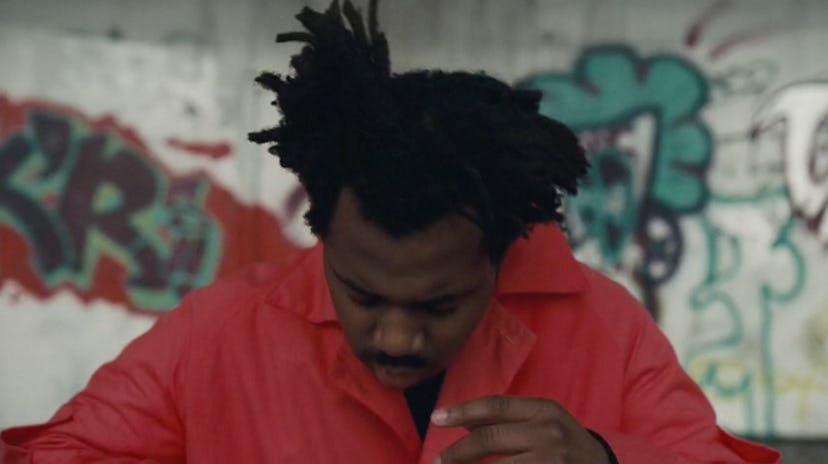After a three-year hiatus from solo work, the songwriter-producer Sampha, who in the meantime has been lending his skills to a few select artists (Drake, Solange, and Kanye West, to name a few), finally put out his long-awaited debut album, Process, last month. And since then, we may even be getting a little spoiled—there’s a solo feature, “4422,” on Drake’s More Life, two tracks with XL Recordings’ Richard Russell, and a “Controlla” cover only a few days ago.
Now this week comes a short film by Kahlil Joseph, the director behind Beyoncé’s Lemonade. At the Museum of Modern Art on Wednesday evening, after viewings in London and Los Angeles, the 40-minute film showed in three separate screenings to a hyped crowd in New York, before dropping on Apple Music last night.
To be a fan of Sampha is to be invested in him as a person. His break from music was not simply an artist taking time off or switching management or repackaging his sound. It was personal. During his time away, his mother lost her battle with cancer, and you can hear his processing of his life on the album. Known as a soft-spoken vocalist with incredible writing, he (as the youngest of five brothers by over 10 years) was her primary caregiver.
His fans want to see him move on. His performances have evolved since that pre-album tour he undertook in the fall of 2016. The introvert who sang from behind his piano in October stepped out to dance, engage, and sing to his crowd in the shows he’s played since the release of Process last month. You could feel the relief of having the album (and the weight of those songs) out there. Sampha is not a social-media heavy artist, but his work is so deeply personal it feels voyeuristic. The film enhances that effect; Joseph made the loss of his mother and importance of his family to the symbolism in Sampha’s writing into moody visuals.
The film is largely based in the capital of Sierra Leone, Freetown, where Sampha’s late parents are from. In addition to a number of Freetown residents, a lot of his family members have a role in the film; in fact, they even have their own section in the credits. The youngest of five boys, Sampha is the only one born in London, so Sierra Leone has loomed large in his imagination. There is little dialogue in this movie, but the verbal exchanges feel weighty. We hear an older woman speaking, but only awhile later do we understand who she is: “That’s my grandson, Sampha,” she says, by way of introducing herself.
Like Sampha’s writing, Joseph’s visuals are packed with metaphor and symbolism. There are scenes shot through a negative filter—the palms of Freetown are stark white—and scenes from a wedding Sampha is sitting through. Here and there, we glean tidbits about him—his brother describes him as not a natural extrovert, but “he’s got something in him that has to come out.” But the more you know about Sampha, the more you’ll take away from the film.
It’s the moments when certain snippets of Sampha’s vocals align with what’s onscreen that truly land. As he sings “Usually I’d run home…,” from the track “Plastic 100°C,” we see a young man climbing the stairs into a home in Freetown; and much later, in the first scene in London we hear the opening of “Kora Sings”: “There’s no one here for miles.” The lyrics, one feels, marks his return to London to take care of his mother just as his career started to take off. He performs in an alley at night, in the rain.
The central figure throughout the film is Sampha’s mother, Bintay Sisay. Towards the end, there’s a scene where a spaceship takes off, representing her passing. And on “Plastic 100°C,” as Sampha goes on and on about melting under the pressure, there’re samples of Neil Armstrong and Buzz Aldrin woven in. And then the screen goes black momentarily, and “No One Knows Me (Like the Piano)” plays. As Sampha’s brother explains, “It was the last song he sang for her.”
Watch W’s most popular videos:
